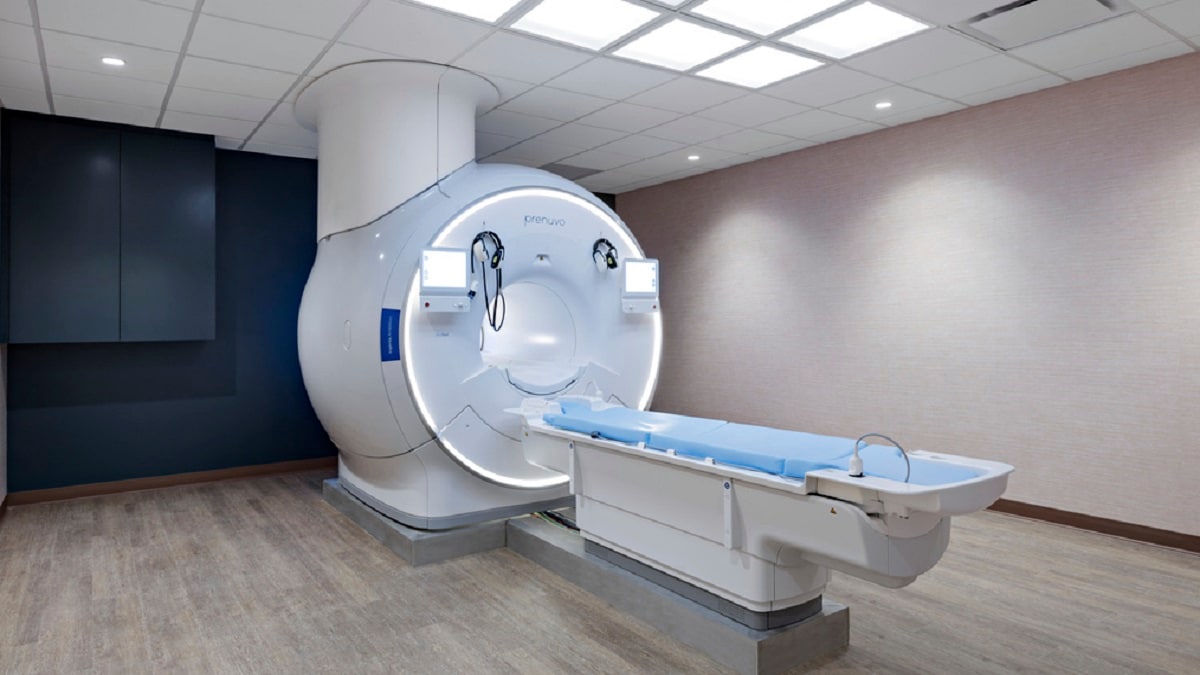Do you want to spot the early signs of life-threatening diseases? Now, if you are rich and in the US it is possible. Several companies are selling high-tech scans to healthy people interested in learning more about their bodies. Some start-ups in the US like Prenuvo charge between $1,000 to $2,500 for various scanning options.
It should be kept in mind that none of the scanning options are covered by any insurance currently. Interestingly, the plans have received a thumbs up from celebrities like Kim Kardashian. She has earlier posted about her Prenuvo scan.

Many consider this to be the next big step in preventive medicine. However, the scans have attracted fire from several medical professionals who consider them an unnecessary treatment that can cause worry among the public and drive up costs for the US health system even further. What is an MRI? MRI stands for magnetic resonance imaging.
It’s a type of medical scan that uses magnetic fields to produce detailed images of organs, bones and other structures inside the body. Unlike many other types of scans, MRIs don’t use radiation. Doctors will order an MRI to help diagnose cancer, brain injuries, damaged blood vessels and other medical conditions.
Full-body scans can take an hour or more, with patients lying motionless inside a cylindrical tube. Medical societies only recommend routine, full-body scans for certain high-risk groups, such as people who have a heightened genetic risk of cancer. “MRIs are great for what they’re typically used for,” said Dr Ernest Hawk, a vice president at the University of Texas MD Anderson Cancer Center.
“But now you’re moving them much earlier into an average-risk population and that’s where you can run into these questions that haven’t been answered.” Why are people spending big bucks on MRIs? Companies like Prenuvo say their scans can help identify more than 500 medical conditions that can go undetected at a typical doctor’s visit. The company charges $999 to scan the torso, $1,799 for the head and torso or $2,499 for the entire body.
Several other companies offer similar services and pricing. Prenuvo’s chief medical officer, Dr Daniel Durand, says customers can decide for themselves if the price is worth it. “We’re trying to give people the opportunity to be more proactive about their health,” Durand said.
Along with the scans and a reader-friendly summary of the results, customers can consult with a nurse or physician employed by Prenuvo to talk about the next steps. The company says it doesn’t pay for endorsements but will sometimes “provide a complimentary scan for an unbiased review.” What are the potential downsides of MRI screening services? Many radiologists say the likelihood of finding a serious problem, such as a cancerous tumour or brain aneurysm, in someone with no symptoms is very low.
Instead, scans are likely to flag growths that are usually harmless. Definitively ruling out a problem could require additional tests, appointments and even surgeries. “You’re going to end up finding a lot of incidental things,” said Dr Mina Makary, a radiologist at Ohio State Wexner Medical Center.
“That’s going to create more psychological stress or trauma for the patient, including additional costs for tests and procedures that may have risks.” Experts also worry that people who undergo MRI scans may start skipping other routine exams, such as mammograms. “You’ve gone through a scan and it didn’t find anything so you say ‘Gee, I don’t need to do the other routine things my doctor recommends that have been proven to extend life,” said Hawk.
What do medical authorities say? The American College of Radiology does not recommend MRI screening in people without symptoms, stating that there is “no documented evidence” that the technique is “cost-efficient or effective in prolonging life.” The US Food and Drug Administration has not approved any MRI machines for preventive screening, but doctors are free to use the devices however they choose. There are examples of imaging practices that were once considered experimental but have subsequently become standard practice.
Prenuvo executives say their approach could follow a similar path. “The evidence will evolve over time but patients don’t necessarily want to wait 30 years to be in a position to benefit from it,” said Prenuvo’s Durand. When will we know if MRI screening helps people live longer? The studies needed to show such a benefit would have to be very large and long, tracking a diverse population for years, according to experts.
Prenuvo recently announced plans to screen 1,00,000 people and study their health over time. The study isn’t expected to wrap up until 2034 or later. Most people enrolling in Prenuvo’s study are expected to pay a $2,200 fee.
But eventually, academic or government studies could offer individuals a chance to participate in such research without paying out of pocket. “This is a great area in which to participate in a research study that might provide the information you’re seeking, while also helping answer whether this is beneficial or not,” Hawk said. “But doing so outside of a study makes no sense.
” With inputs from AP.



















